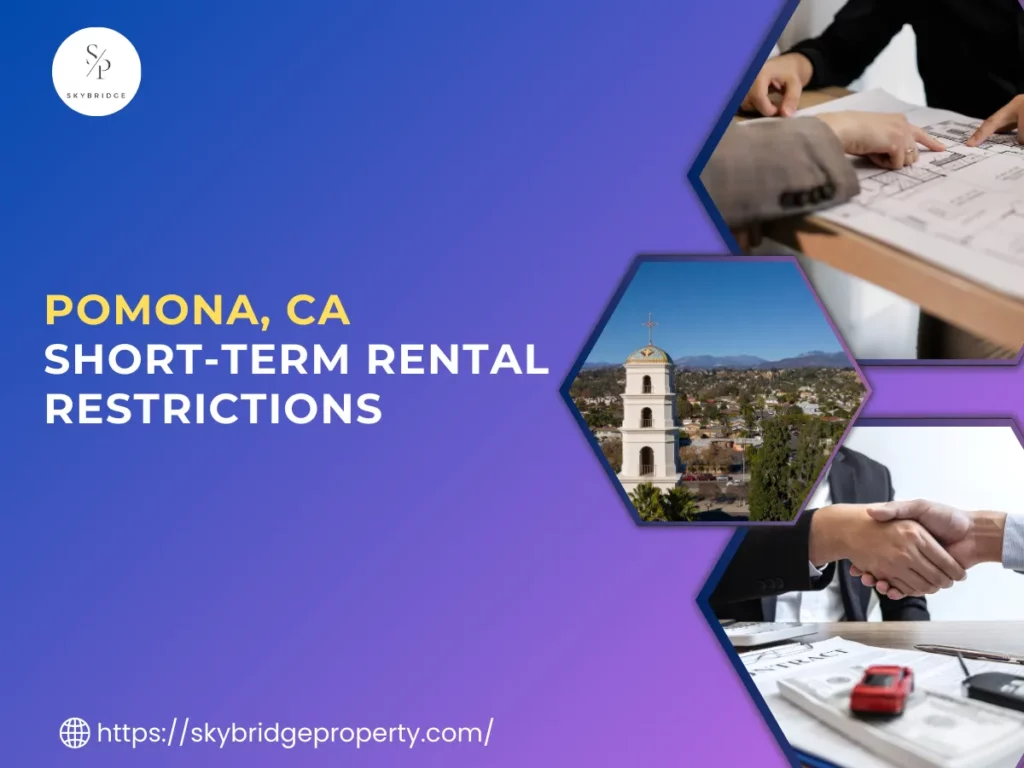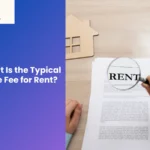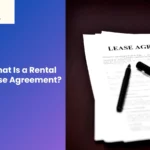Short-term rentals (STR) are residential properties rented for 30 days or fewer through platforms like VRBO and Airbnb. STR are increasingly becoming popular in areas like Pomona, CA, as homeowners as well as investors seek to meet demands from temporary visitors and tourists. However, the excessive rise in demand led to growing concerns around neighborhood disruption, housing availability, and regulatory gaps, prompting the City of Pomona to regulate STR restrictions in 2023. The STR restriction limits or controls how residential properties can be rented out for short periods, typically less than 30 days.
Key regulations include a minimum 30-day stay, requiring owner-occupancy, and prohibiting STR in R-1 residential zones. Also, property owners should undergo inspections, obtain permits, and pay a 12% TOT. These rules aim to balance tourism with community well-being by regulating how STR can operate. Although these policies promote neighborhood stability, they sparked debate among community groups and hosts. Also, Pomona offers an STR portal and compliance workshops to support residents and hosts with property management firms. Through this guide, learn the precise legal requirements, zoning laws, permit processes, and tax obligations for a smooth STR operation.
What is Short-Term Rental Restrictions (STR)?
Short-term rentals in Pomona are rental properties that are leased to tenants for a short duration, typically less than 30 days, as per the Pomona Municipal Code. These properties became popular in 2023, mostly in tourist as well as residential zones. It is regulated to address homeowners’ complaints, develop fair and balanced short-term rental regulations for registration, maintain housing availability, collect taxes, and ensure trust and safety.
Before implementing Pomona’s short-term rental regulation in January 2023, the city experienced notable growth in STR activity. As of 2023, Pomona had 306 total available listings, a 47% occupancy rate with $181.2 average daily rate, $80.9 revenue per available rental, and $10.1k annual revenue. This growth highlighted the increasing popularity of rental platforms like VRBO and Airbnb, emphasizing the need for regulatory measures.
The key stakeholders for short-term rentals include residents, rental platforms, the city council, and local businesses. Residents are often concerned about noise safety and the impact on neighborhood character, pushing for stricter regulations. On the other hand, the city council or local government aims to balance community concerns with economic opportunities by enforcing permits, tax collection, and safety standards. In addition, local businesses usually support short-term rentals due to the increased tourism and customer flow.
What Legal Requirements Govern Short-Term Rentals in Pomona?
Pomona’s legal requirements for short-term rentals, defined as residential properties rented for short stays, are primarily driven by the 2023 ordinance enacted to address community concerns like parking issues and noise. These regulations include zoning restrictions (prohibiting STR in residential zones and mandating a 30-day minimum stay) and owner-occupancy requirements that aim to maintain quality residential life. Pomona implemented these regulations in 2023 to address community concerns such as parking problems, excessive noise, trash, and other disturbances.
The city aimed to uphold community welfare and reduce negative effects related to short-term rentals. The primary stakeholders affected by these rules are property owners or hosts, as they must comply with permit requirements, tax obligations, and owner-occupancy. Likewise, residents of Pomona to protect their quality of life, guests since they are subject to the regulations, and the city of Pomona, which is responsible for tax collection and enforcing the regulations, are also affected by these regulations. In short, the rules and regulations heavily affect people trying to rent out a property for short-term rental purposes.
How Do Property Owners Obtain Permits and Comply with Taxes?
In Pomona, property owners seeking to operate short-term rentals must navigate a regulatory landscape shaped by the city’s 2023 ordinance. R-1 residential zones strictly prohibit STR operations, eliminating the possibility of obtaining permits for such activities in these areas.
For properties located in zones where STR are permissible, property owners must obtain a conditional use permit following the process to operate a legal short-term rental:
- Applying with a fee
- Passing a property inspection
- Providing documentation proving owner-occupancy
The application is usually applied through the city’s planning or permitting department with detailed information about the property, their residency status, and compliance with all safety and zoning regulations.
There are two key rules according to the 2023 ordinance in Pomona regarding short-term rentals. They are:
30-day minimum stay: By implementing a 30-day rule, the city aims to reduce the frequent turnover of guests, which contributes to neighborhood disturbances. This rule effectively limits transient short-term rentals, like a weekend or nightly stays.
Owner-occupancy: This regulation requires the property owner to live on-site to ensure that someone is present who is committed to maintaining order and adhering to city regulations. It is believed that the presence of the owner helps mitigate issues like parking problems, excessive noise, and other disruptions.
Pomona’s STR law is relatively strict in terms of zoning restrictions, minimum stays, and owner-occupancy compared to some other areas within Los Angeles County. There is a growing trend across LA County to implement stricter regulations to address issues like housing affordability, quality of life, and neighborhood character.
How Does Pomona Enforce Short-Term Rental Violations?
Pomona enforces short-term rental violation restrictions through a combination of resident reporting, permit verification, and platform accountability. To obtain an STR permit, homeowners need to complete a detailed application, pay associated fees, and undergo inspections to ensure compliance with safety and zoning regulations.
Here’s the detail on the steps required to apply for a short-term rental permit in Pomona:
Key Requirements
- Owner-Occupancy: It is one of the critical aspects of Pomona’s regulations, meaning the property owner must reside on the premises.
- Residency Requirement: Permittee is required to live in the house for a minimum of 60 days prior to applying for the STR permit.
- Zoning Clearance: Applicants are required to obtain a zoning clearance letter from the city to verify that the property is zoned for STR operations. This is essential as Pomona has zoning restrictions, particularly prohibiting STR in R-1 zones.
Application Process
- Permit Application: Homeowners should complete and submit a formal STR permit application to the city.
- Documentation: Applicants should provide necessary documentation like proof of identity, proof of residency, proof of insurance, and proof of the STR being rented legally.
- Inspections: The property should undergo inspections to ensure that it complies with safety and health regulations.
- Fees: The annual STR registration fee is $914 which is a necessary amount to recover the costs for staffing and administration of the program.
Lastly, homeowners should comply with the city’s STR ordinance and are highly recommended to contact the City of Pomona’s planning or finance departments directly to stay up-to-date with the process.
Moreover, the city mandates the collection and remittance of a 12% Transient Occupancy Tax (TOT), which is calculated as a percentage of rental income. When hosts fail to renew permits annually or operate without a valid permit are subjected to pay daily penalties with fines exceeding $1,000 per day as per Pomona’s municipal code.
What Impact Have STR Restrictions Had on Pomona’s Community?
Pomona’s STR restrictions have significantly impacted the community by aiming to restore and preserve the residential character of neighborhoods. The strict prohibition of STR in R-1 zones and the 30-day minimum stay requirement have effectively limited transient occupancy and reduced the frequent turnover of guests. Likewise, by stressing owner-occupancy regulations, the city has fostered a sense of accountability with the expectation that owners will be more invested in maintaining compliance and order. Nonetheless, the rules and regulations have contributed to a more stable and predictable residential environment.
The enforcement of these laws has residents play a crucial role in reporting illegal STR operations through online platforms and hotlines, enabling the city to identify and address non-compliant hosts. By reporting these violations, residents help the city address non-compliant STR, protect the character of their neighborhood, and ensure that STR activities comply with city regulations. Likewise, the city holds platforms like Airbnb accountable for unlicensed listings, thereby reducing the visibility and availability of illegal rentals. Furthermore, non-compliant hosts can face substantial fines with reports indicating penalties exceeding $1,000 per violation as per Daily Bulletin.
What Debates and Challenges Surround Pomona’s STR Policies?
Pomona’s STR policies face ongoing challenges and debates for the 30-day minimum stay rule, as some hosts have legally challenged the 30-day minimum stay as overly restrictive, arguing that it restricts their property rights and potential income. Although designed to restrain transient occupancy, some hosts have seen it as overly restrictive. In addition, discussions regarding potential exemptions to the current ordinances, such as permitting STR for specific event-based situations or allowing STR in Accessory Dwelling Units (ADUs), are being conducted to offer more flexibility.
Moreover, community groups like Pomona Neighborhood Association are playing a significant role in shaping their policies, and they often advocate for stricter regulations to protect that residential character and mitigate the negative impacts of STR.
Where Can Residents and Hosts Find Resources for Compliance?
Residents and hosts in Pomona seeking resources for compliance can resort to several avenues, like the City of Pomona’s STR Portal, which serves as a central hub for regulatory documents, permit applications, and tax-related information. This portal would streamline the process of understanding and adhering to the city’s ordinances. Likewise, compliance workshops are essential for hosts to navigate the complex regulatory landscape.
The City of Pomona’s STR portal offers online access to various government services that are essential for short-term rental (STR) operators. This includes the Transient Occupancy Tax (TOT) Portal, where users can file and pay their short-term rental taxes, settle any outstanding TOT balances, report issues related to TOT, and access the rental registration portal for general registration of rentals.
Compliance workshops help STR hosts by offering direct guidance on complex regulations, tax obligations, and permit applications. These help clarify the city’s order, ensuring hosts understand and adhere to rules and provide opportunities for direct interaction with officials, encouraging clear communication. Furthermore, the Finance Department usually handles matters related to the Transient Occupancy Tax (TOT) collection and remittance, while Code Enforcement handles zoning violations, general ordinance adherence, and permit compliance.
How Can Local Property Managers Support STR Compliance in Pomona?
Local property management plays a crucial role in ensuring that short-term rental (STR) owners meet all compliance requirements set by the City of Pomona. These professionals assist with zoning analysis, manage permit application and renewal submissions, and ensure timely collection and remittance of the 12% TOT. Experience property management firms provide support like handling resident complaints, maintaining documentation, and coordinating mandatory inspections.
From licensing to tax reporting, each aspect of STR operation is handled by the local firm, giving you peace of mind. Partnering with a trusted firm like Skybridge Property Group ensures full adherence to Pomona’s STR framework through expert property management in Pomona. For STR owners seeking operational ease and legal assurance, working with expert property management in Pomona like us drives strategic advantage for long-term success and community-based compliance.







